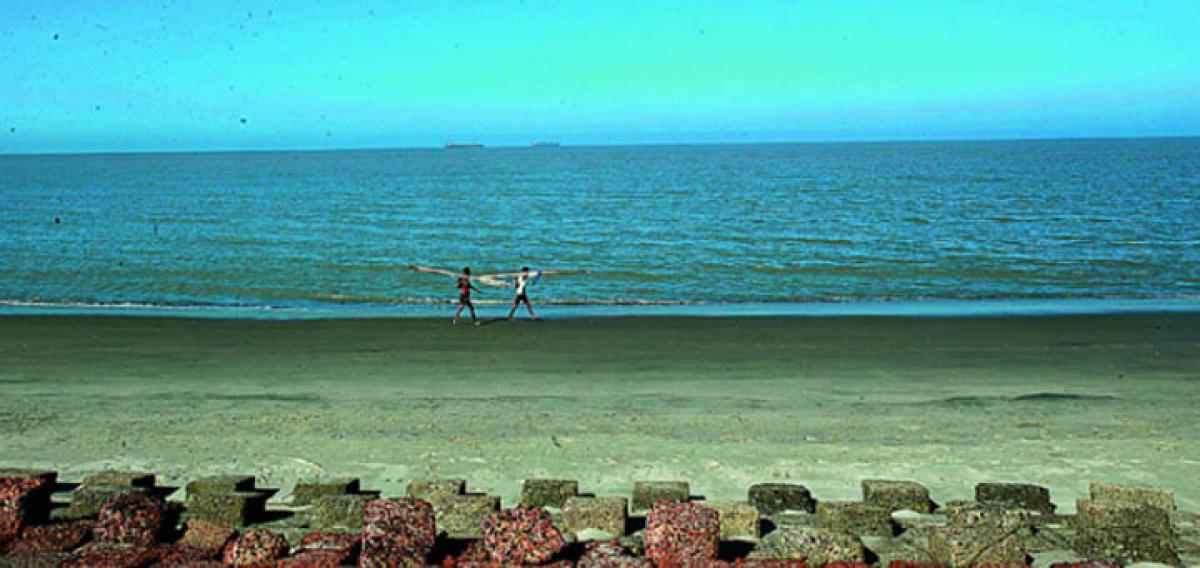Live
- Group-3 exams in Wanaparthy district peacefully*
- Shraddha Das reigns as a fashion icon
- ‘Sarangapani Jathakam’ teaser set for Nov 21st release
- Nadendla Manohar announces WhatsApp services for grain purchase
- AP DCM Pawan Kalyan Addresses Public Rally in Ballarpur, Maharashtra
- ‘Pushpa The Rule’ trailer launch event: Massive fan frenzy in Patna
- Jyothika slams negative campaign on ‘Kanguva’
- It’s official: Naga Chaitanya and Sobhita Dhulipala to tie the knot in December
- ‘Kantara: Chapter 1’ locks release date for Oct 2025
- Telangana to Implement New EV Policy from Tomorrow, Aims for Cleaner Environment
Just In

Hamida Begum has fled her home on Bangladesh’s Kutubdia island more times than she can remember while her neighbours have already given up the battle to prevent theirs being swallowed by the sea. “I am scared our house will be washed away as well some day and during the monsoon season we can\'t live here at all,” says the mother-of-four, standing outside the only one of a row of mud-brick shacks still intact.
Hamida Begum has fled her home on Bangladesh’s Kutubdia island more times than she can remember while her neighbours have already given up the battle to prevent theirs being swallowed by the sea. “I am scared our house will be washed away as well some day and during the monsoon season we can't live here at all,” says the mother-of-four, standing outside the only one of a row of mud-brick shacks still intact.
“But this is our land and besides, we don’t have money to go elsewhere.” Although around 1,00,000 people still reside on Kutubdia, few have any illusions they are living on borrowed time, with Coast — a Bangladeshi NGO — warning the whole island could disappear underwater within 50 years.


© 2024 Hyderabad Media House Limited/The Hans India. All rights reserved. Powered by hocalwire.com







